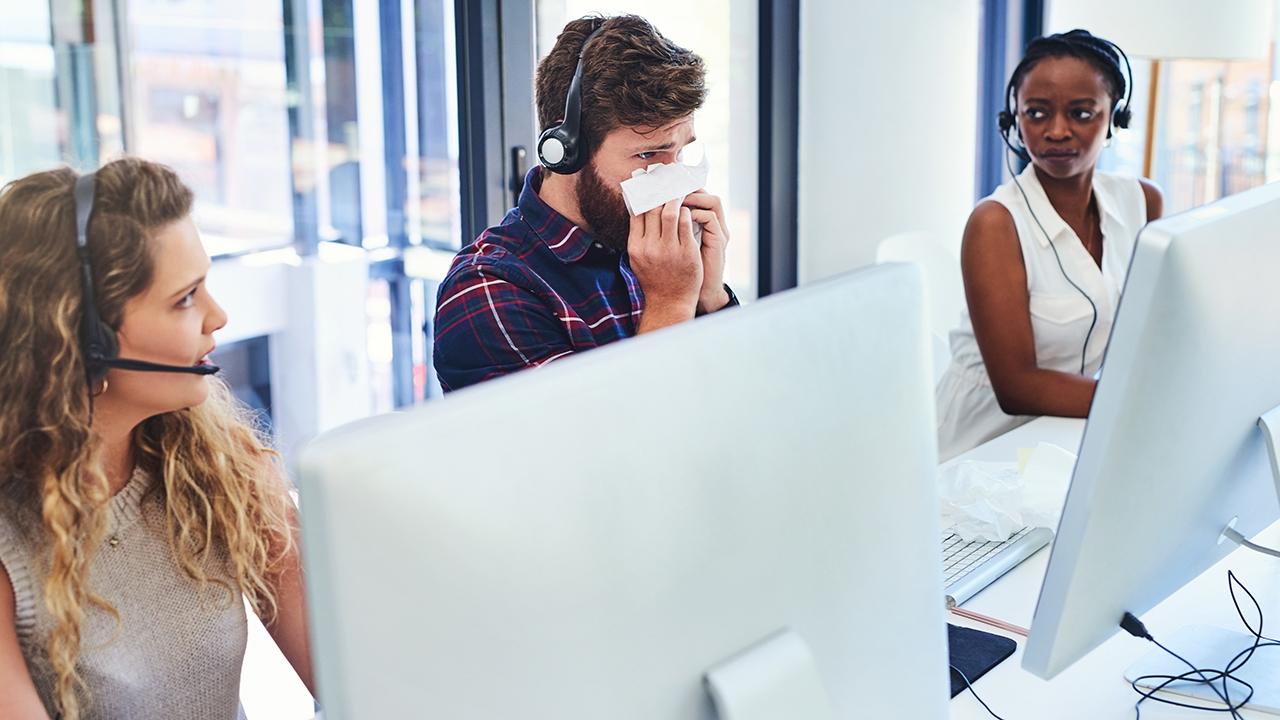90% of employees attend work sick: Study
Americans have 'too much work' to call out sick
Are your coworkers getting you sick? Are you the guilty, sick coworker?
A study released by management consulting company Robert Half revealed a whopping 90 percent of Americans show up to work sick.
Reasoning includes having too much work to do, not having enough sick days and feeling pressure from employers to be present.
According to family and emergency medicine Dr. Janette Nesheiwat, people who are sick really should just stay home.
“If you're sick, stay home, take care of yourself, go see your doctor if you're getting worse because it can easily spread,” she told FOX Business' Deirdre Bolton. “Your infection can spread to the rest of your colleagues and your coworkers… and the next thing you know, your whole team is sick.”
AMERICANS FEELING 'PRESSURE' TO WORK SICK: STUDY
This comes as the flu season is officially ramping up. According to Nesheiwat, the flu directly correlates with job growth, according to a study by Economics and Human Biology.
The study shows that for every one percent increase in employment, flu-related doctor visits increase by 19 percent.
TOP 10 STATES WHERE FLU VIRUS IS HITTING HARDEST
Nesheiwat said the flu is “highly infectious” and contagious, so being in close quarters with coworkers or commuters will make you more susceptible to being infected.
“[The flu] can spread easily from person to person, especially if you're not keeping your hands washed and clean,” she said. “So you want to make sure you get your flu shot. Don't rub your eyes. Don't rub your nose and take care of yourself.”
GET FOX BUSINESS ON THE GO BY CLICKING HERE
Dr. Devi Nampiaparampil, an associate professor for the NYU School of Medicine, is putting the onus on employers to "set a better example."
“Maybe employers should be telling people to go home because otherwise, other employees get sick and then you have this whole thing skyrocket,” she said on "Mornings with Maria" Monday.
CLICK HERE TO READ MORE ON FOX BUSINESS
Nampiaparampil said the industries most affected by this spread include retail and health care since there’s more exposure through touching surfaces like knobs and hangers, and to sick patients.





















